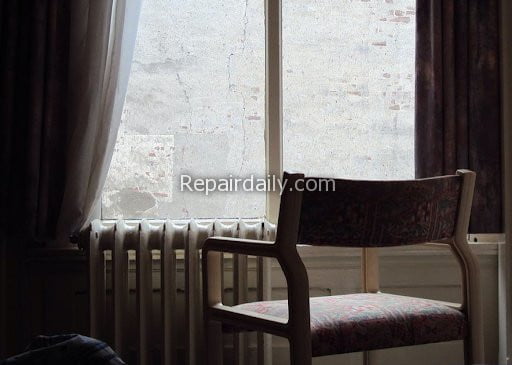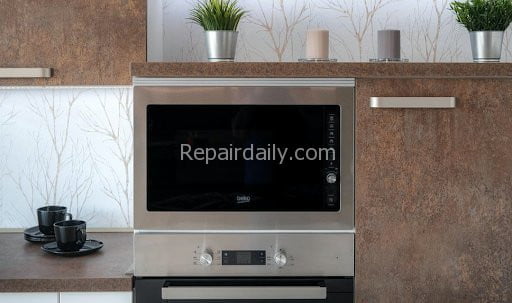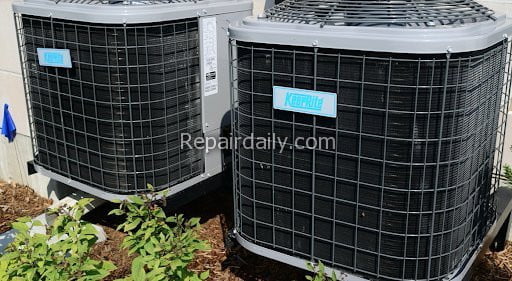
If you have ever taken the time to look at some of the specifications on a heater or an air conditioner, you may have noticed that they are measured in BTU. Unless you spend a lot of time working with these appliances, you may have no idea what BTU stands for or whether you are getting good energy efficiency out of the process or not.
British Thermal Units, or BTU, can be a great way to measure the amount of thermal energy that you are using. It has been around for a good amount of time and is utilized to help figure out the classifications of heating and cooling appliances in your home. Let’s take a closer look at BTUs and how to tell what they mean for you.
What are BTUs?

The first thing that we need to look at Is what BTU is all about. As we mentioned above, BTU is going to stand for British Thermal Units and it is basically just a measurement of thermal energy. This type of measurement was used during the late 1800s and has since become the number one unit to help classify cooling and heating appliances across the country.
The calculations for this type of energy were meant to be simple. One BTU is the energy that is necessary to heat or cool one pound of water 1 degree Fahrenheit at sea level. The higher the BTU, the more you can cool or heat the water to the level that you need, meaning more strength in your heating and cooling appliances.
What Household Appliances Need BTU?

The most common place you will find the BTU measurement is going to be in your cooling and heating appliances. However, there are times when you will see it on other appliances to help you measure whether they are successful or not. Some of the other appliances that utilize BTU as a unit of classification include:
- Gas fire pits
- Cooking devices
- Heating fuel
- Solar hot water heating
- Oil filled heaters
- Electric heaters
- Pellet stoves
- Air conditioners
Each of these will utilize BTU in a slightly different manner, but we will focus mainly on how these units are used for air conditioners and heaters to help you see the most common use for BTU measurement. You can use heat BTU calculator to understand how many BTU’s you actually need from your home electrical appliances.
What Does BTU Mean with Air Conditioners?
When you are using BTU for your air conditioner, the number is going to refer to the amount of heat a unit is able to remove from the air each hour. Some of the ranges you will see for your air conditioner include:
- Portable air conditioners will run between 8000 to 12,000 BTU
- Window mounted air conditioners can vary based on their size with most falling somewhere between 3000 to 25,000 BTU
- Split system air conditioners will be somewhere between 9000 to 36,000 BTU based on the size of the property.
Central air conditioning units, where there is just one compressor used for the whole home, will often work with tonnage to help measure the cooling power rather than BTU. It is easy to convert between the two. 1 air conditioner ton will be the same as 12,000 BTU/hr.
How Does BTU Compare to Other Units of Measurement?
The BTU is often going to be seen as a traditional unit of heat. It is considered part of the British Imperial system of units and will be useful for a lot of appliances, but often found with heaters and air conditioning units.
There are a few different measurements of heat that you could use in place of BTU as well, though these are not as common as some of the others. Jules, calories, and Kilowatt hours are common as well. Converting these does not have to be difficult and some of the formulas you can utilize include:
- 1 BTU is the same as 1055 J
- 1 BTU is the same as 252 calories
- 1 BTU is the same as 0.000293 kWh.
If you do find a heater or an air conditioner that uses one of these other units of measurement, you can do some conversions to help you figure out the strength that comes with them and whether they make sense for the space that you need to heat and cool at the time. The right BTU will help make sure you keep cool in summer and hot in winter.
Should I Always Go for More BTUs?
Many homeowners assume that they need to go with a higher BTU in order to get more efficiency. But you may find that a higher BTU rating on the device isn’t always the best answer for you. Using a portable air conditioner that has a higher than necessary could cause the unit to cool, turn off, and then cycle all the time, which can cause it to wear out quickly.
By cycling on and off al of the time, the compressor of the air conditioner will end up overworking itself. If this is done excessively, it can shorten the lifespan of the unit. Sure, you will keep nice and cool, but it will ruin your air conditioner and even the heater, meaning you will have to spend more on a new unit sooner than you should.
Of course, this is not exclusive to the portable air conditioning units either. You will run into some of the same problems with your central air conditioner and window AC unit and even your heaters. If you are uncertain about the BTU rating that you need for your home, you should talk to an AC professional to see what they would recommend for your home.
Using the BTU System
When you take a look at your heater or air conditioner, you should be able to see how many BTU the system is. This can help you figure out how efficient the system is and whether it can heat or cool the area you would like. This can help you pick out the right system for your home.

